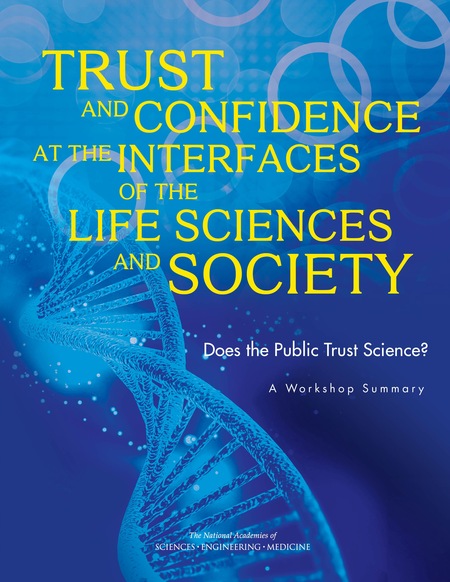Does the public trust science? What are the elements of trust, and how is it built, maintained and lost? Those questions were featured in a National Academy of Sciences workshop in May at which Annenberg Public Policy director Kathleen Hall Jamieson analyzed and reflected on issues of trust and what scientists can learn from political communication scholars.
Jamieson said that if scientists want people to trust science, they must make science trustworthy, and engage people in a interactive understanding of how scientists reach their conclusions. An audience needs to “participate in the process of understanding and draw its own conclusions with the help of the scientists,” she said.
She also said that science needs to speak in a dispassionate voice, account for all of the available data, and be seen as having no other motive than seeking knowledge.
Jamieson’s remarks to the conference on May 6th can be found here:
Toward a Common Understanding of Trust in Science — Some Reflections
 The NAS workshop was subsequently published as: Trust and Confidence at the Interfaces of the Life Sciences and Society: Does the Public Trust Science? A Workshop Summary (2015). To order a copy click here.
The NAS workshop was subsequently published as: Trust and Confidence at the Interfaces of the Life Sciences and Society: Does the Public Trust Science? A Workshop Summary (2015). To order a copy click here.
For further information and materials from the two-day workshop “Does the Public Trust Science?” hosted by the National Research Council’s Roundtable on Public Interfaces of the Life Sciences, click here.

